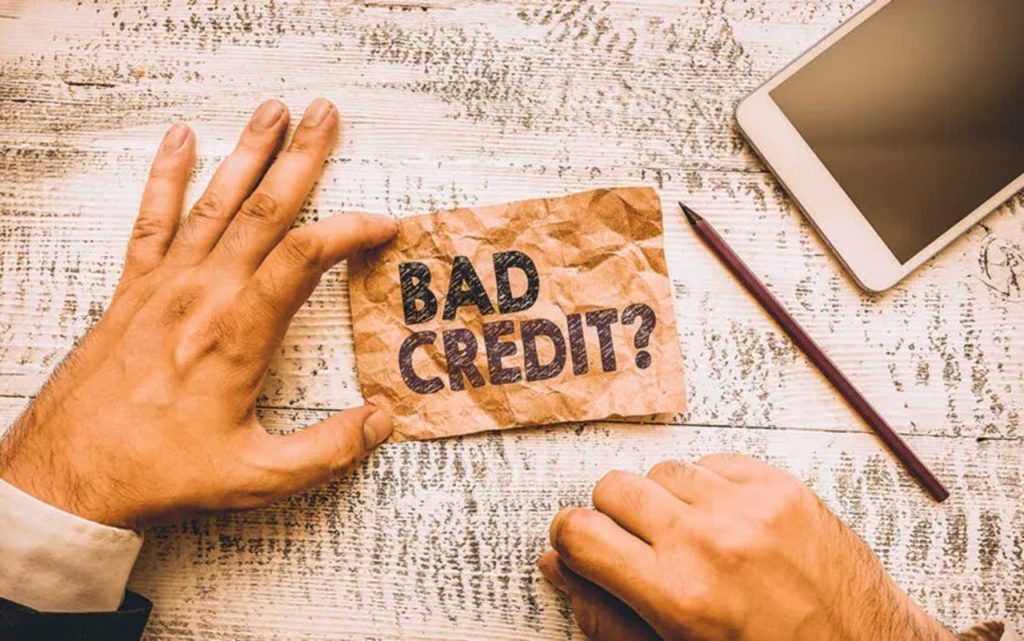
A credit score is a numerical representation of your creditworthiness and it is based on your financial history. Credit scores range from 300 to 850 and scores below 600 may be considered bad credit. Credit scores are calculated based on factors such as payment history, credit utilization ratio, length of credit history, new credit, and credit mix.
Having bad credit may be the resultant effect of making late payments on credit cards, loans, mortgages, and other bills. Bad credit can seem like a major setback and it makes it harder to borrow money or get approved for a mortgage as bad credit and loans do not sit well with lenders. However, with the right financial knowledge and decisions, bad credit can be fixed.
Causes of Bad Credit
Bad credit is a bad look for a person’s financial responsibility and creditworthiness. Here are some of the primary causes of bad credit:
Late Payment
Early payment of bills, mortgages, car loans, and other debts benefits your credit score. A good payment history is the most important factor in calculating your credit score. It accounts for about 35% of your Fair Isaac Corporation (FICO) score. A record of late payment can stay on your record for up to six years, but as long as you improve your payment habits, your score can improve over time and increase your borrowing chances.
High Credit Card Balances
Utilizing a large percentage of your available credit negatively impacts your score. Credit utilization is the ratio of your current credit card balances to your credit limits. High utilization (over 30%) indicates potential over-reliance on credit. It is vital to know your credit limit on your cards and keep your utilization score down up to 10%.
Paying off your credit early every month can help to keep your score down. However, it is not advisable to have a 0% utilization rate, so make sure to run up your credit but maintain a low utilization rate.
Defaulted Loan
Failing to repay loans can severely damage your credit. Defaulting on any loan, whether it’s a personal loan, student loan, or auto loan, negatively impacts your credit score and it may remain on your credit report for up to seven years. Ensure to pay loans according to the agreed terms. You may also consider getting loans for bad credit.
Bankruptcy
Filing for bankruptcy can stay on your credit report for up to 10 years, indicating an inability to manage debt. Bankruptcy can significantly drop your credit score by 200 points. A record of bankruptcy is a public one and it changes the way you are perceived by potential lenders who may begin to offer higher interest rates due to your financial position.
You may be rejected for loan applications or even be restricted to certain types of credit products, such as secured credit cards for bad credit or subprime loans, which come with higher fees and interest rates.
Foreclosure
Losing a home to foreclosure indicates failure to keep up with mortgage payments. It can be up to seven years on your credit report, causing a major drop in your credit score. A foreclosure can lower your credit score by 100 to 160 points. After a foreclosure, it becomes much harder to get approved for new loans or credit cards.
How to Calculate Your Credit Score
Knowing your credit score is important for maintaining good financial health. It helps you understand your creditworthiness and prepare for major financial decisions, like applying for loans or credit cards.
According to U.S. federal law, you are entitled to one free credit report every 12 months from each of the three major credit bureaus: Experian, TransUnion, and Equifax. These reports can be accessed through Annual Credit Report, the only authorized website.
Credit scores generally range from 300 to 850. Here’s a basic breakdown:
- Excellent (800-850): Indicates excellent creditworthiness.
- Very Good (740-799): Reflects very good creditworthiness.
- Good (670-739): Shows good creditworthiness.
- Fair (580-669): Indicates fair creditworthiness.
- Poor (300-579): Reflects poor creditworthiness.
How To Improve Credit Score
Improving your credit score requires consistent effort and smart financial decisions. Here are the key steps to fix your credit score:
Check Your Credit Reports Regularly
Ensure to get free copies of your credit reports from the three major credit bureaus. Review your report and look for inaccuracies or fraudulent accounts. Common errors include incorrect personal information, account status errors, and duplicate accounts.
If you find errors, dispute them with the credit bureaus and ensure the credit bureau corrects the errors.
Pay Bills on Time
Payment history is the most important factor in your credit score, so it is important to pay on time. Consider setting up automatic payments for recurring bills to ensure on-time payments, or use mobile apps or calendars to set reminders. Make consistent payments to rebuild your payment history.
Reduce Outstanding Debt
Focus on paying off credit card balances and other high-interest debts to reduce your credit utilization. To make it easier try paying off the smallest debts first or paying off the highest-interest debts first, whichever method works for you. Just make sure it is realistic and work towards it.
Limit New Credit Applications
Avoid applying for new credit unless necessary, each application for credit results in a hard inquiry that can lower your score whether you are approved or denied. Frequent credit inquiries stack up hard inquiries that negatively affect your score. Instead of hard inquiries, use prequalification tools to look at loan offers and terms before applying for new credit.
Seek Professional Help
Consider a credit counseling agency for personalized financial advice. Credit counselors can provide guidance and strategies to improve your financial situation and credit score.
Alternative Options for Those With Bad Credit
Even though you have limited options with a bad credit there are several alternative options available that can help manage your finances and work towards improving your credit score. These options include:
Secured Credit Cards
It can be difficult to get a regular credit card for bad credit owners. Getting a secured credit card may be the best option. A secured credit card allows you to spend only the amount you have on deposit. For example, if you deposit $500, your credit limit will be $500.
Having a deposit reduces the risk of high credit utilization and it is easier to improve your credit. Also, many secured credit cards offer the possibility of upgrading to an unsecured card.
Credit Builder Loans
These types of loans are available to help people improve their credit scores. Unlike traditional loans, the borrowed money is held in a bank account until the loan is paid off. This process demonstrates your ability to make consistent payments.
Regular payments are reported to the credit bureaus, helping to build or improve your credit score. These loans are usually available through credit unions or community banks.
Cosigner on Loans
A cosigner can make it easier to obtain loans for bad credit. A cosigner agrees to repay the loan in the case of a default, providing an additional layer of security for the lender. You have a higher chance of approval if you have a cosigner because the lender considers a cosigner’s credit history and income.
Peer-to-Peer Lending
Peer-to-peer (P2P) lending platforms match borrowers with investors willing to fund loans. These platforms can be more flexible than traditional banks. P2P loans may offer more favorable terms for those with bad credit and provide an alternative to traditional personal loans for bad credit. It is difficult to get a personal loan for bad credit because it requires between 610-640 credit score. However, with P2P lending, lenders may offer loans for as low as 600 credit score.
Fix Your Bad Credit With Capital Max
Fixing a bad credit can be tasking but not impossible. With the proper steps and exploring the right alternative financial options like credit cards for bad credit or personal loans for bad credit, you can work towards a healthier financial future.
If you are struggling with bad credit and finding it hard to secure the financial support you need? Capital Max is here to help. Improving your credit takes time and patience, but with diligence, you can achieve better credit health. With Capital Max, you can take the first step towards rebuilding your credit and achieving financial stability.Visit our website or contact us on 855-302-2748
